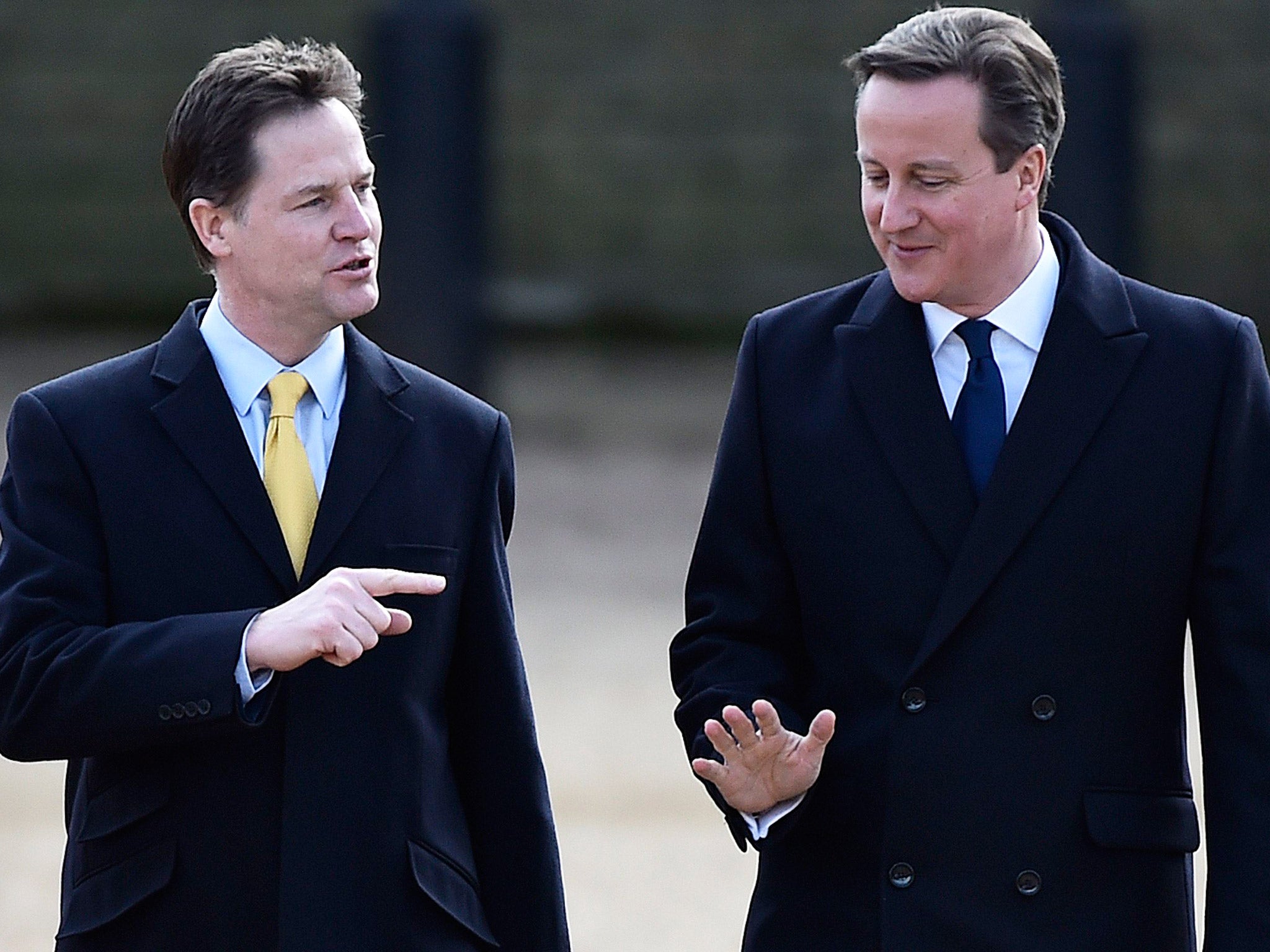Your support helps us to tell the story
From reproductive rights to climate change to Big Tech, The Independent is on the ground when the story is developing. Whether it's investigating the financials of Elon Musk's pro-Trump PAC or producing our latest documentary, 'The A Word', which shines a light on the American women fighting for reproductive rights, we know how important it is to parse out the facts from the messaging.
At such a critical moment in US history, we need reporters on the ground. Your donation allows us to keep sending journalists to speak to both sides of the story.
The Independent is trusted by Americans across the entire political spectrum. And unlike many other quality news outlets, we choose not to lock Americans out of our reporting and analysis with paywalls. We believe quality journalism should be available to everyone, paid for by those who can afford it.
Your support makes all the difference.Nick Clegg was actually “keen” to treble student tuition fees and is “talking crap” by claiming he did not want to vote for the policy, a former coalition colleague has said.
Last night the Liberal Democrat leader told a Question Time audience that he was “between a rock and a hard place” on the broken pledge.
“In politics, as in life, sometimes you can’t do exactly what you want,” he argued. “I was absolutely between a rock and a hard place five years ago on that particular policy.”
But James O'Shaughnessy, David Cameron’s former director of policy, says he was in the room in 2010 when the policy was being discussed and that Mr Clegg was “keen” for it to go ahead.
“[Nick] Clegg [is] talking crap on tuition fees,” he tweeted. “He wasn't between 'rock and hard place'. I was in the room when he decided to vote for it. He was keen.”
The policy chief said Mr Clegg was in favour of trebling fees because the plan came from a department headed by a Liberal Democrat minister, Vince Cable, and because he simply “agreed with the policy”.
The claim is likely to chime with the suspicions of some Liberal Democrat activists. In 2009, before the last election, the Liberal Democrat leadership launched a bid to remove the free education commitment from the party’s manifesto.
“We have got to treat people like grown-ups,” Mr Clegg said at the time. “It is a policy which has significant financial implications. None of us know precisely yet what we can afford. The issue is simply on the affordability.”
The attempt was defeated in a vote by party members and the policy was ultimately included in the manifesto.
Mr O'Shaughnessy was David Cameron's director of policy from 2007 to 2011; he co-authored the Coalition's programme for government and played a leading role in managing the Coalition's policy programme. He now works for Portland Communications.
In 2012 Mr Clegg apologised for breaking his pledge, telling voters in a video message: “It was a pledge made with the best of intentions – but we should not have made a promise we were not absolutely sure we could deliver.”
The Liberal Democrats went into the election with a manifesto commitment to abolish all tuition fees and restore free education.
All of the party’s MPs also signed a separate commitment, organised by the National Union of Students, to individually vote against any increase in the education charges whether they formed a government or not.
Most of the party’s MPs ultimately voted to treble tuition fees from £3,000 to £9,000 despite a provision in the 2010 coalition agreement allowing them to abstain on the vote.
The policy is estimated by the Institute for Fiscal Studies to have saved the Treasury no money and may have even cost the taxpayer more than the old fee level because of its upward pressure on inflation-linked spending.
A Liberal Democrat spokesperson told the Independent that the new tuition fees system was fairer than the old system, but did not comment directly on Mr O'Shaughnessy's claims.
“We did not win the election, so we could not deliver every policy that we wanted to, especially as we went into government with a party that was determined to raise fees at a time when there's no money," the spokesperson said.
“Instead, Nick Clegg and Vince Cable fought to deliver the fairest deal they could, introducing a form of graduate tax where the wealthiest graduates pay more."
Subscribe to Independent Premium to bookmark this article
Want to bookmark your favourite articles and stories to read or reference later? Start your Independent Premium subscription today.

Join our commenting forum
Join thought-provoking conversations, follow other Independent readers and see their replies
Comments